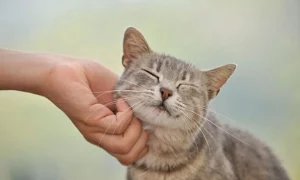- 16 April 2024
- 381
Cultivating Calmness: Training Kittens for Serenity

Welcome to the journey of cultivating calmness in your Training Kittens. As adorable and playful as they may be, kittens can also experience moments of anxiety and stress. In this guide, we will explore effective techniques for training kittens to be serene and composed companions.
Understanding the Importance of Calmness in Kittens
Natural tendencies of kittens
Kittens are naturally curious and energetic creatures. However, they can easily become overwhelmed by unfamiliar situations or loud noises, leading to anxiety and restlessness.
Benefits of a calm kitten
A calm kitten is not only more pleasant to be around but also healthier overall. Reduced stress levels can prevent behavioral issues and promote better physical well-being.
Techniques for Training Kittens

Socialization
Introduce kittens to various people, animals, and environments from a young age to help them become accustomed to different stimuli.
Positive reinforcement
Reward desired behaviors such as using the litter box or playing gently with treats or praise to reinforce calm and appropriate actions.
Environmental enrichment
Provide stimulating toys, scratching posts, and climbing structures to keep kittens mentally and physically engaged, reducing boredom and anxiety.
Establishing a Routine
Feeding schedule
Maintain a consistent feeding schedule to regulate energy levels and prevent food-related aggression or anxiety.
Playtime and exercise
Engage kittens in regular play sessions to expend excess energy and stimulate their minds in a positive way.
Rest and relaxation
Ensure kittens have quiet, cozy spots where they can retreat for naps and downtime, away from noisy or chaotic areas.
Creating a Peaceful Environment
Safe spaces
Designated quiet areas of the home where kittens can feel secure and undisturbed, such as a comfortable bed or secluded corner.
Minimizing stressors
Identify and eliminate potential stress triggers in the environment, such as loud noises or sudden movements, to promote a sense of calmness.
Use of pheromones and calming aids
Consider using pheromone diffusers or calming sprays to create a soothing atmosphere for kittens, especially during times of change or transition.
Handling Stressful Situations
Recognizing signs of stress
Learn to recognize common signs of stress in kittens, including excessive hiding, aggression, or changes in appetite or grooming habits.
Calming techniques
Practice gentle grooming, massage, or soothing music to help kittens relax during stressful situations or when experiencing anxiety.
Patience and Consistency
Importance of persistence
Training kittens for calmness requires patience and consistency over time. Be prepared to reinforce positive behaviors and address setbacks with kindness and understanding.
Adjusting expectations
Every kitten is unique, and progress may vary. Be realistic in your expectations and celebrate small victories along the way.
Conclusion
Cultivating calmness in kittens is a rewarding endeavor that enhances both their well-being and your bond with them. By implementing positive training techniques, creating a peaceful environment, and practicing patience and consistency, you can help your kittens grow into happy, well-adjusted companions.
FAQs
How long does it take to train a kitten to be calm?
Training a kitten for calmness is an ongoing process that can vary depending on the individual kitten and their environment. Consistency and patience are key.
Are there specific breeds of kittens that are naturally calmer?
While some breeds may have a reputation for being more laid-back, temperament can vary widely within any breed. It’s essential to consider each kitten’s unique personality and needs.
Can older kittens or cats be trained for calmness?
Yes, it’s possible to train older kittens and cats for calmness using many of the same techniques employed with younger kittens. However, it may require more time and patience.
What should I do if my kitten is overly anxious or fearful?
If your kitten exhibits signs of excessive anxiety or fear, consult with a veterinarian or animal behaviorist for personalized guidance and support.
Is it okay to use medication or supplements to calm my kitten?
Medication or supplements should only be used under the guidance of a veterinarian and as part of a comprehensive treatment plan. It’s essential to explore non-pharmacological approaches first and prioritize the kitten’s safety and well-being.

